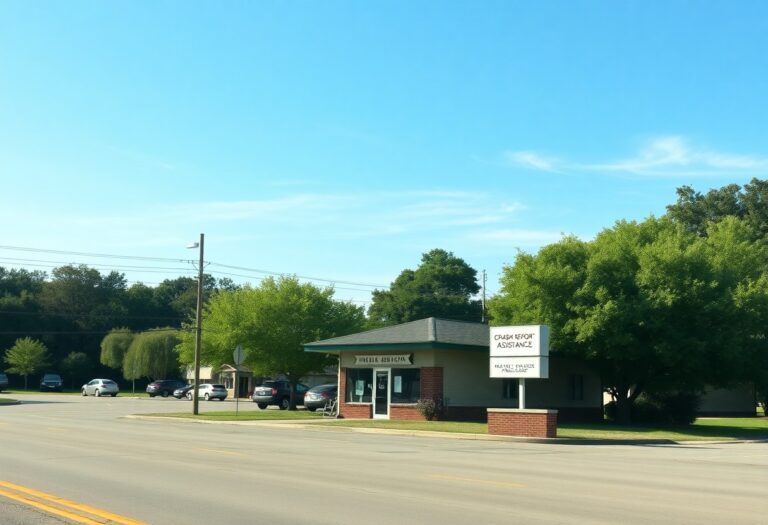Over the past few years, car accidents have unfortunately increased in Jefferson County, Tennessee. If you’ve found yourself involved in such an incident, obtaining your car accident report is necessary for your insurance claims and legal proceedings. This guide will equip you with the necessary steps to access these reports quickly and efficiently, ensuring that you have the information needed to move forward. Understanding the process can help alleviate some of the challenges that arise after an accident, allowing you to focus on recovery and resolution.
Unraveling Tennessee’s Car Accident Reporting System
Tennessee’s car accident reporting system can seem complicated, but understanding its components can streamline the process of obtaining your accident report. When a collision occurs, a report typically documents details like time, place, parties involved, and witness accounts. This report is vital not only for insurance purposes but also for any potential legal action you may need to pursue. Being aware of how this system operates will help you extract the information you need more efficiently after an unfortunate incident.
The Role of Law Enforcement in Report Generation
Law enforcement officers play a pivotal role in generating accident reports. After a collision, law enforcement arrives at the scene to assess the situation, gather evidence, and collect statements from drivers and witnesses. This detailed documentation is vital for establishing the facts surrounding the accident, which can ultimately impact liability and insurance claims. Officers ensure that every relevant piece of information is recorded in the official report, providing a comprehensive overview of the incident.
Understanding the Legal Requirements for Reporting
The state of Tennessee mandates that certain accidents be reported to law enforcement, particularly those involving injuries, fatalities, or significant property damage exceeding $400. As a driver, you’re obligated to contact the authorities if you’re involved in such an accident. The law stipulates a strict timeline within which these reports must be filed, emphasizing the importance of acting quickly after an incident to ensure all necessary documentation is completed accurately and efficiently. Failure to adhere to these legal requirements can lead to complications in your ability to recover damages or even result in fines.
More specifically, accidents must be reported if they result in injuries to any individual or if they involve a vehicle that is no longer operable due to damage. This legal obligation also includes accountability for filing an accident report with the Tennessee Department of Safety within 20 days when injuries or damages meet the threshold. Having awareness of these requirements is vital, as it influences not only the efficiency of your claim process but also your compliance with Tennessee law. By keeping informed, you’ll better navigate the complexities of accident reporting and protect your interests following a crash.
Navigating Jefferson County: Local Procedures Explained
Understanding the local procedures in Jefferson County is crucial for efficiently acquiring your car accident report. Familiarizing yourself with the specific protocols can save you time and ensure you have the necessary documentation for insurance claims or legal actions. Jefferson County has established clear steps to follow, including where to go, the forms to fill out, and any associated fees. Knowing these details can make the process smoother and less stressful for you.
Where to Obtain Your Accident Report
You can obtain your accident report from the Jefferson County Sheriff’s Office or the city police department, depending on where the accident occurred. Most reports are available online through official government websites, where you can submit your request digitally. Alternatively, visiting the office in person may provide quicker access if you need the report immediately.
The Importance of Timeliness in Requesting Reports
Timely requests for your accident report can significantly impact your next steps following a collision. Delaying your request can lead to complications with your insurance claim or legal proceedings. Accident reports serve as primary evidence, outlining the details of the incident and impacting fault determination. In cases of severe accidents, the report may be crucial for immediate healthcare decisions or legal advice.
When you seek your accident report promptly, you position yourself better for navigating insurance claims and possible litigation. Different parties, including insurance adjusters and legal representatives, rely on accurate and timely information to assess liability and damages. In some instances, waiting too long might complicate your case or limit your opportunities for compensation. For instance, if an insurance company settles before you provide all necessary documentation, you could miss out on beneficial coverage or reparations. Therefore, requesting your report shortly after the incident helps solidify your case and informs your next steps effectively.
What to Expect from Your Car Accident Report
Your car accident report provides a detailed account of the incident, outlining key facts pertaining to the crash, contributing factors, and any injuries or damages sustained. Familiarizing yourself with the report can guide you in understanding liability and supporting your case in the aftermath of an accident. This document assists you in gathering all pertinent information needed to navigate through the next steps of recovery and claims processes.
Key Elements Included in the Report
The report typically includes important details such as the date, time, and location of the accident, names and contact information of all parties involved, and the responding officers’ observations. Additionally, it may feature diagrams illustrating the accident scene, weather conditions, and descriptions of damages to the vehicles. Such specifics serve to clarify the circumstances surrounding the accident.
The Role of Accident Reports in Insurance Claims
Insurance claims heavily rely on accident reports as they offer an official account of the incident. Insurers assess the report to determine fault and calculate damages. A well-documented report can streamline your claims process, proving invaluable when negotiating settlements or disputing liability claims.
Accident reports not only confirm the sequence of events but also support your stance during negotiations with insurance adjusters. For instance, if the report indicates clear negligence on behalf of another driver, you may feel more confident contesting low settlement offers. By presenting a comprehensive report, you bolster your chances of securing the compensation you deserve, significantly impacting the outcome of your claim. Understanding these nuances can make a substantial difference in resolving your case efficiently.
Common Pitfalls: Mistakes to Avoid When Requesting Reports
Requesting a car accident report can sometimes lead to missteps that delay your access or complicate the process. You might overlook simple steps that ensure a smooth request, risking frustration or unnecessary expenses. Identifying and steering clear of these common pitfalls can save you time and help you obtain the report you need without added stress.
Misunderstanding Fees and Processing Times
You may underestimate the fees associated with accessing your report or miscalculate the time it takes for processing. Many agencies charge for copies of reports, which can vary from one jurisdiction to another. Processing times can also differ; some may take only a few days, while others might require weeks, particularly if the report is still under investigation.
Neglecting Necessary Information for Accurate Reports
Providing incomplete information is a common error during the request process. Without important details such as the date, time, and location of the accident, your request may be stalled or denied. Ensuring accuracy regarding the specifics of the incident sets you up for a smoother experience and helps speed up the retrieval process.
When requesting your car accident report, omitting critical details can lead to significant delays or even an inability to locate your file. Information such as the involved parties’ names, the accident report number if available, and any additional identifiers—like your vehicle’s license plate or VIN—can dramatically impact the efficiency of your request. Double-checking the information you provide ensures that the agency can quickly and accurately fulfill your request, ultimately minimizing wait times and getting your report in your hands sooner. Make it a habit to gather all relevant details before beginning the request process to avoid unnecessary complications.
Empowering Yourself: Utilizing Your Car Accident Report Effectively
Understanding the contents of your car accident report allows you to take control of your situation. With the details outlined in your report, you can better advocate for your rights and pursue the compensation you deserve. Familiarizing yourself with the specifics often impacts the effectiveness of your interactions with legal and insurance representatives. By doing so, you position yourself for a stronger case or negotiation.
Leveraging Reports for Legal and Insurance Purposes
Your car accident report serves as a primary piece of evidence for both legal claims and insurance processes. When you file a claim, the information in the report verifies key details such as fault and damages, which are vital in determining compensation. Utilize it when discussing with your insurance adjuster or attorney to support your position and demonstrate the validity of your claim.
Steps to Take After Receiving Your Report
Upon receiving your car accident report, prioritize reviewing it for accuracy. Address any discrepancies immediately, as error correction can play a critical role in your case. Next, share the report with your attorney or insurance agent. Compare the details with your own records, and outline your next steps based on the report’s findings.
Once you have your report, conducting a thorough review is vital. Look for any potential mistakes or missing information that could affect your claim. If you find inaccuracies, contact the agency that issued the report to request corrections without delay. After confirming the details, share this comprehensive information with your attorney or insurance provider—keeping them informed will ensure they are prepared to advocate on your behalf. Take detailed notes as you discuss your situation, as this can provide additional context and insights to help advance your case effectively.
To wrap up
Hence, obtaining your car accident report in Jefferson County, Tennessee is a straightforward process that can help you in various situations, such as insurance claims or legal disputes. By understanding the steps involved and knowing where to go for assistance, you can ensure that you have the necessary documentation to support your case. Take the time to gather the information you need, and don’t hesitate to seek help if you encounter any difficulties. Your ability to navigate this process effectively will serve you well in the aftermath of an accident.













